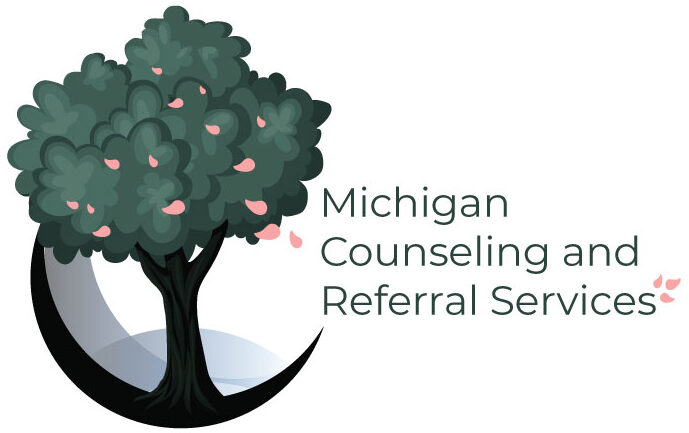Table Of Contents
What is therapy in Psychology?
What is Therapy in Psychology?
By the end of this article you will know what therapy is therapy in psychology and what it is defined as, what a therapist does, what kinds of therapists there are, and which therapist is right for you!
You are considering talking to somebody about a problem you have, but what is therapy in psychology exactly? It seems like a magical, scary void that everybody who does it swears by and insists on you doing it! I had the same feelings before I went into this field. How will this help me? How do I know my brain is telling me it needs therapy? What even is therapy?
Psychotherapy Definition
Therapy is often termed “psychotherapy” in the research literature and in various practice environments by therapists, researchers, and other professionals alike.
According to the American Psychological Association (APA-Link this) the definition for therapy in psychology is as follows:
Remediation of physical, mental, or behavioral disorders or disease
So let’s break this down. Remediation essentially means rehab, or “making better”. Physical, mental, or behavioral disorders or disease are usually defined as symptoms that get in the way of allowing you to live your life healthily.
So therapy is attempting to help out your physical, mental, or behavioral symptoms to live a happier and healthier life.
Every therapist has a unique approach and definition to therapy that usually will stem from this. The goal is “rehabilitation”, or helping you get better using the tools that you have access to.
Those tools can be your insight, your emotional regulation tendencies, or your self care routines. I like to measure peoples’ ability to learn about themselves and develop insight. It all depends on the therapist that you are working with.
Okay, so you have defined what therapy is and what tools you may or may not have. What does a therapist do to help with this anyway?
What does a Therapist do?
Of course, like I mentioned therapists have unique approaches to how they can help you. It all depends on how they are trained, what types of therapy they like to use, what populations they work with, etc. There are a ton of factors that go into what a therapist does for you.

Generally speaking, therapists will learn about you in the therapy process, learn about what you would like to address–your presenting problem–and help you develop a plan to address that problem.
Some of us have problems that stem from many different places–trauma, anxiety, depression, or even general life changes. No matter where your problem is believed to stem from, a therapist can likely help relieve some of the emotional stress of dealing with this problem.
So what does a therapist do specifically to help me address my problem(s)? Well, that all depends on you. If I want you to take anything away from this article it is that every therapist should be making a plan that is individually tailored to you! This makes it hard to answer some of these questions generally.
Having said that, therapists are great people to help you access your toolset for taking care of yourself. We all live in a world where we are expected to participate in our cultures, work, provide for/be a part of our families, go to school, go to religious services, etc. People have lots of obligations! This usually comes with lots of responsibilities, some of which can cause us to go emotionally haywire.
If this is you, do not worry because you are NOT alone! It happens to everyone, no matter where in the world your are or where your problems stem from. Some of us have access to our emotional toolbox and just need a little help making it better.
Others of us may not be aware of our emotional toolbox and may need help either finding it or making it. No matter where you are on this spectrum, any type of therapist can help you discover the tools you need!

What are the Types of Therapists?
So what exactly are the types of therapists? There are definitely a lot of individuals to choose from. First off, any therapist that you see MUST BE LICENSED IN YOUR STATE.
The title “therapist” is not a protected title, meaning that anybody that wants to can market themselves as a “therapist”. Often times these people are either practicing unethically or are referring themselves as different types of rehabilitation experts that are NOT evidence based and mental health related.
Make sure you do research on your professional that you choose to work with before and during your work with them to make sure you know exactly who they are. Specifically, you want to search for “licensed therapists”.
The types of therapists that I will be discussing are mental health therapists who are licensed providers by the state you live in. The main difference between all of these providers is education and title.
In the United States you have access to psychiatrists (MD or DO), psychologists (PhD/PsyD/LP), clinical social workers (LMSW/LCSW/LISW), counselors (LPC/LPCC), and marriage and family therapists (LMFT). All of these professionals are great to work with, as I have worked with folks from all domains! I will break them all down in the following paragraphs and provide you with the lens of their training:
Psychiatrist–Medical: Psychiatrists have the largest “scope of practice” in the mental health field, meaning they are able to offer the most kinds of mental health treatment for you. They are medical doctors and require medical school, a residency, and many go on to do fellowships before practicing independently.
Psychiatrists can be a type of therapist that offers psychotherapy and/or medication. Most psychiatrists in the US only do medication consults, but there is a subsect of psychiatrists that administer talk therapy to patients.
For more info, visit the American Psychiatric Association here.
Psychologist–Behavioral: Psychologists are also doctors in many cases, but not medical doctors. Psychologists go to graduate school for an extended period of time after their bachelors degree, often times 5-7 years, and attain a degree called the PhD (Doctorate in Philosophy).
This means that they are more focused on the research of their field in addition to psychotherapy. Some do not participate in research, but are still doctors of psychology. These individuals attain a PsyD, which is equivalent to the PhD in that they can administer psychotherapy and can identify themselves as doctors of psychology.
Psychologists in MOST states cannot administer medications. There are a few exceptions, make sure to look up the laws in your state depending on your needs.
For more info, visit the American Psychological Association here.
Clinical Social Worker–Social Justice: This is what I am! Clinical social workers are usually not doctorate level practitioners. We go to graduate school for 1-3 years after our bachelors and get a master of social work degree (MSW) then practice for 2 years post-graduate degree to get our full license.
Some of us go into what is called macro work (HR, consulting, policy writing, advocacy) and some of us go into micro work, which is clinical work as a psychotherapist. We can offer psychotherapy and are currently the largest body of psychotherapists in the US.
Our unique lens is working with the person in environment, meaning we see you and how you interact in the systems that you participate in. Social workers really (my opinion) have the most interesting lens, but I may be slightly biased.
For more info, visit the National Association of Social Workers here.
Licensed Professional Counselor–Behavioral: Counselors are very similar to social workers in their training. They go to school for 2-3 years post bachelors and get a master of clinical science, psychology, or any kind of behavioral science then practice for 2 years post-grad before getting their full license to practice.
How they get their title is through the license that they hold that is regulated by a state. Essentially, LPCs are trained in helping folks with generally any mental health disorder you can think of, and they often do a fantastic job!
For more info, visit the American Counseling Association here.
Marriage and Family Therapist–Relationships: Like us social workers and counselors, marriage and family therapists are trained very closely to how we are trained in graduate school. They also attain a master in marriage and family therapy for 2-3 years after their bachelors and practice for that two year post-grad period under a supervisor before being fully licensed.
Marriage and family therapists look at individuals in their families and relationships and help them thrive with those environments in mind.
For more info, visit the American Association for Marriage and Family Therapy here.
What Kind of Therapist do I need?
Before I give you the answer to this question, let me just state one fact. When each of these mental health practitioners are first trained, they are highly trained to use their “lens” in their practices that they learned about in school.
However, the longer they are in practice the more their “lenses” tend to blend, as we all learn the specific types of therapy that we enjoy treating. For example, I am a clinical social worker who has been in trainings and worked alongside psychiatrists, psychologists, and counselors alike.
I administer the same treatment as many of the psychiatrists, psychologists, and counselors that I was trained with do–with the exception of, of course, medication management. So we are trained different and hold different degrees/licenses, but we are all at our core similarly equipped.
Having said that, you need the therapist who can best help you. Are you struggling with severe depression and anxiety to the point that you cannot function or leave the house? Are you able to feed and dress yourself in the morning? Are you able to get out of bed in the morning?
If you answered “no” to any of these questions it may be time to check in with a psychiatrist for some medication to help pick you up.
Medication is meant to get you functioning, but therapy is to get you thriving. That is why research shows that the best treatment is often medication with therapy.
So call a social worker, psychologist, counselor, or marriage and family therapist near you. They will likely be able to help you with the problems you are facing. If they cannot or are not a good fit for your therapeutic needs, ask for a referral or what they would recommend for you. The experts of your area are going to be practitioners that are close to you.
If you are in Michigan and are considering therapy, feel free to either send me a message or give me a call! I am happy to discuss how to best set you up with a therapist that fits your specific needs!
